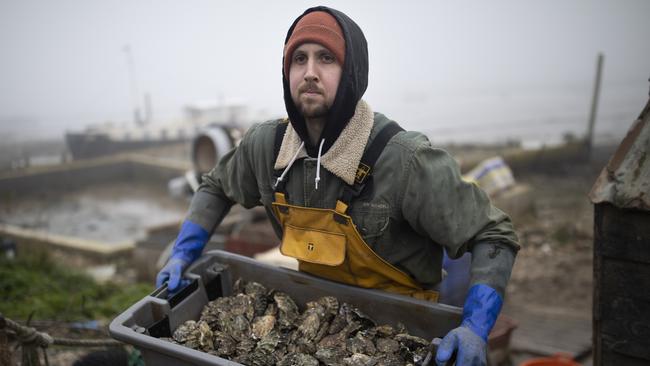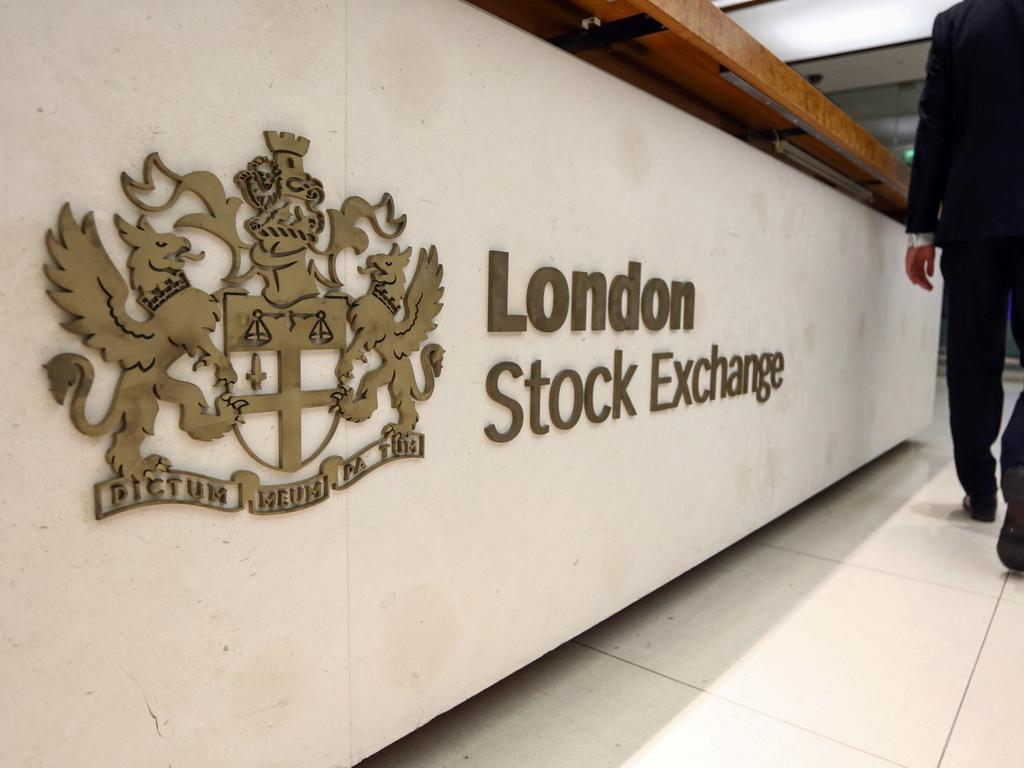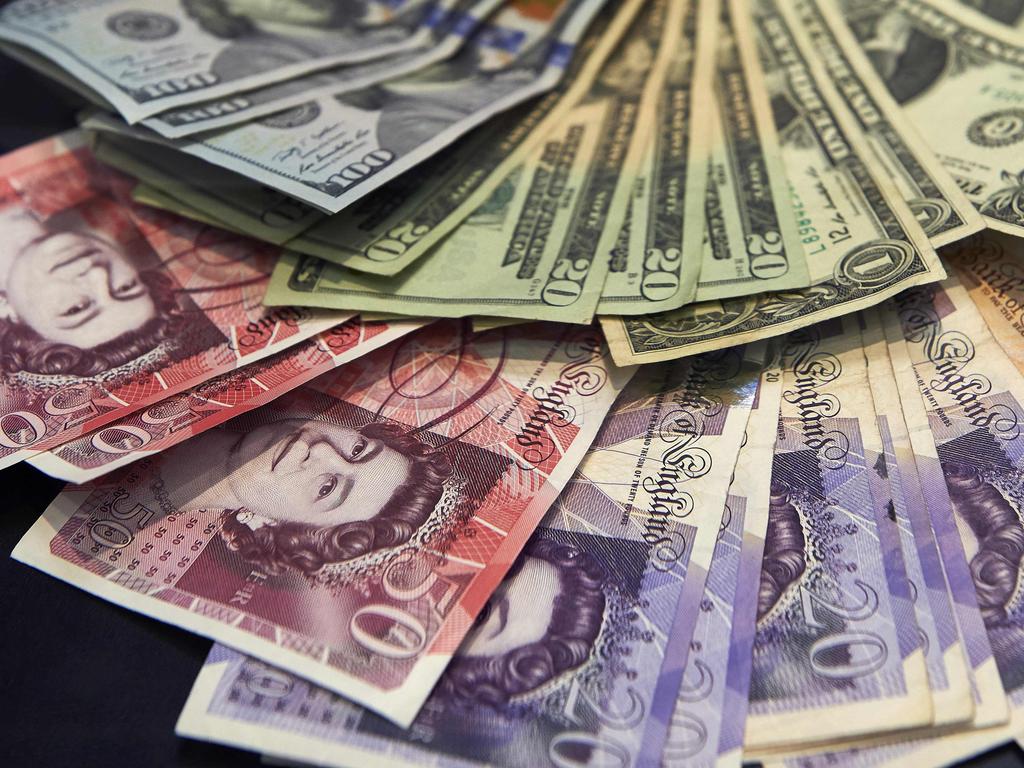UK counts cost of Brexit as new rules and red tape complicate exports

This year, Brompton Bicycle, the biggest British bike manufacturer by volume, expects to make between 50,000 to 60,000 of its folding bikes, which have become a staple of many a city commuter. From its factory in west London, the company exports about three quarters of the cycles it makes, and roughly a third go to Europe.
A couple of weeks ago Brompton raised the prices of its bikes. Disruption caused by the pandemic, a turbulent maritime freight market and Brexit were all to blame, according to Will Butler-Adams, the company’s chief executive, who added that he hoped “that within the next 12 to 18 months Brexit disruptions will have calmed down. But at the minute, it’s causing us complexity and, ultimately, it’s costing the consumer an above-inflation price rise.”
Before the Brexit transition period ended on December 31, Brompton would export small consignments of perhaps three or four bikes from its Greenford factory to shops across Europe. However, since December 31, mountains of paperwork and other complexities have made this all but impossible. Now the bikes are loaded on to a shipping container destined for The Netherlands, from where they are broken up into smaller consignments and sent to their final destinations.
“It used to take two or three days; now it takes two to three weeks,” Butler-Adams said of getting the bikes to shops in the European Union. “There are all these little things and they all tot up to create problems and add costs. We’re lucky as a business that we have strong cash reserves. Some don’t.”
Two months in, the economic picture emerging from Brexit is clouded by the pandemic, but the consensus among UK companies appears to be that it is a complex and costly business, for now and perhaps forever.
“Our sense generally is that there has been a decent hit to trade, but it’s a complicated and messy picture and it is still too early to know the true story,” said Joe Marshall, a researcher at the Institute for Government.
“There are things that are more properly teething problems, like people having the wrong customs paperwork or getting error messages from customs IT systems.
“But there are also more structural problems: the cost of dealing with non-tariff barriers and rules of origin requirements, for example. Some firms are able and willing to absorb these higher costs for a while, but if it’s long term it might not be sustainable.”
David Owen, an economist at Jefferies, said: “There is a cost, but only time will tell how much. At the moment, all such things are being dwarfed by everything COVID.”
Even Brexiteer businessmen appear to be having problems.
Lance Forman, a former Brexit Party MEP and a director of food retailer Forman & Field, said that difficulties exporting to Northern Ireland probably would mean losing a few customers there. His company had also felt the knock-on effects of serious problems with fishing exports from Britain.
“We are bemused,” he said. “We have been trying to source native lobsters in recent weeks and cannot get hold of them for love nor money — so either the shellfish operators are now exporting to the EU, or have found other markets, or aren’t fishing.”
However, Forman said the overall impact of Brexit for his company had been limited. He recently won a new wholesale customer in Greece and “the form-filling was straightforward”.
Carmaking and chemicals, Britain’s top manufacturing export industries, are less confident. Import barriers have forced carmakers including Nissan and Jaguar Land Rover to fly in some parts by air to avoid even costlier shutdowns of their production lines.
This and other Brexit-related friction was blamed in part for a 27 per cent year-on-year slump in British car production in January.
For many exporters, new “rules of origin” requirements have been the greatest headache of all. To avoid tariffs, British companies exporting goods to the EU generally must prove that the majority of their parts or raw materials are sourced domestically or from the bloc.
A leading defence company, which did not wish to be named, said that it now had to provide documents detailing the origin of 20,000 parts that made up one of its products before exporting it to the EU.
For some manufacturers, the burden of the rules of origin requirements “are so complicated that they can’t fulfil their orders”, said Ben Fletcher, policy director at Make UK, the manufacturing association.
He described the post-Brexit disruption as “a bit like a big wall on an obstacle course. Some will get over it and have got over it. Some will get there in the end, but for now they’re looking at the ropes and wondering how.
“But the business model of a ‘hub’, where you source parts from across the world and export out of UK, is now all but dead because of rules of origin. These guys are never going to get over the wall.”
The fate of the financial services industry, one of the biggest contributors to the UK economy, is unclear. It rests on talks between Britain and the EU in the months ahead.
Since the start of the year, Amsterdam has usurped London as the leading share trading hub on the Continent and the City’s market-leading position for trading in financial instruments known as “euro swaps” has been hit, with the business going to New York, Paris and Amsterdam.
However, these losses are largely symbolic rather than economically significant. Jes Staley, chief executive of Barclays, said last month that Brexit was “more than likely on the positive side than on the negative side. I think what London needs to be focused on is not Frankfurt or Paris (but) New York and Singapore.”
Dominic Raab, the Foreign Secretary, recently urged businesses to take a “10-year view” of post-Brexit trade. And, like Staley, Butler-Adams of Brompton believes there is opportunity beyond the Continent.
“There was maybe a feeling before Brexit that ‘export’ equalled ‘Europe’,” he said. “We really need to be trading the entire globe — although now the fear is that you can’t even get to Europe.”
Additional reporting: Gurpreet Narwan







In 1975, from his bedroom workshop overlooking the Brompton Oratory in South Kensington, London, Andrew Ritchie began drawing up plans for a bike that could fold up neatly into a package no bigger than a briefcase. The first Brompton bikes appeared two years later and by 2002 Ritchie’s company was making about 5000 a year.